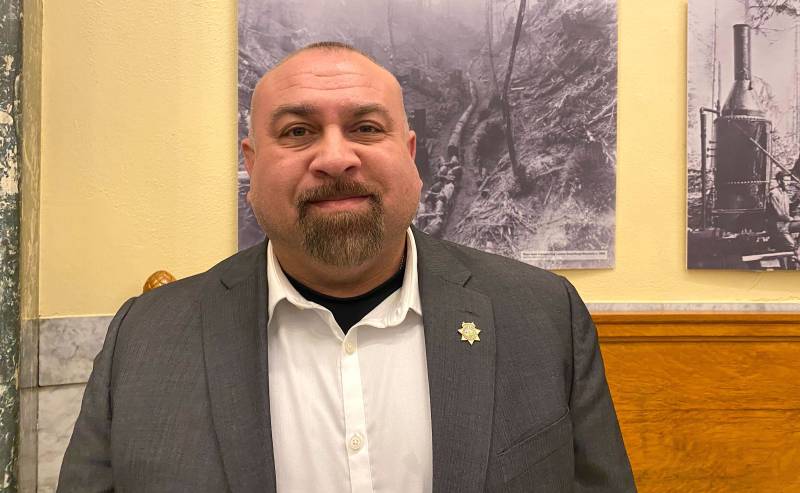The San Mateo County District Attorney is declining to pursue charges against the head of the deputy sheriff’s union, announcing on Monday that his office’s investigation found no evidence of wrongdoing.
Carlos Tapia, president of the Deputy Sheriff’s Association (DSA), turned himself into the sheriff’s office on Nov. 12 on charges related to theft and time-card fraud. Shortly after posting bond, he argued that his arrest was retribution for speaking out against Christina Corpus, the county’s embattled sheriff.
In an unusual move, Corpus’ office didn’t consult with the district attorney before making the arrest.
“We have concluded based on the follow-up investigation that no crime was committed by Deputy Carlos Tapia, that the complete investigation showed that there was no basis to believe any violation of law had occurred, and finally that Deputy Tapia should not have been arrested,” San Mateo County District Attorney Stephen Wagstaffe said in a statement. “There were clerical errors in the manner in which work hours were coded but nothing showing criminal intent or criminal conduct. Additionally there was no monetary loss to the Sheriff’s Office by the miscoding.”
At a press conference on Monday, Supervisor Ray Mueller apologized to Tapia on behalf of the county and renewed his calls for Corpus to immediately resign.

